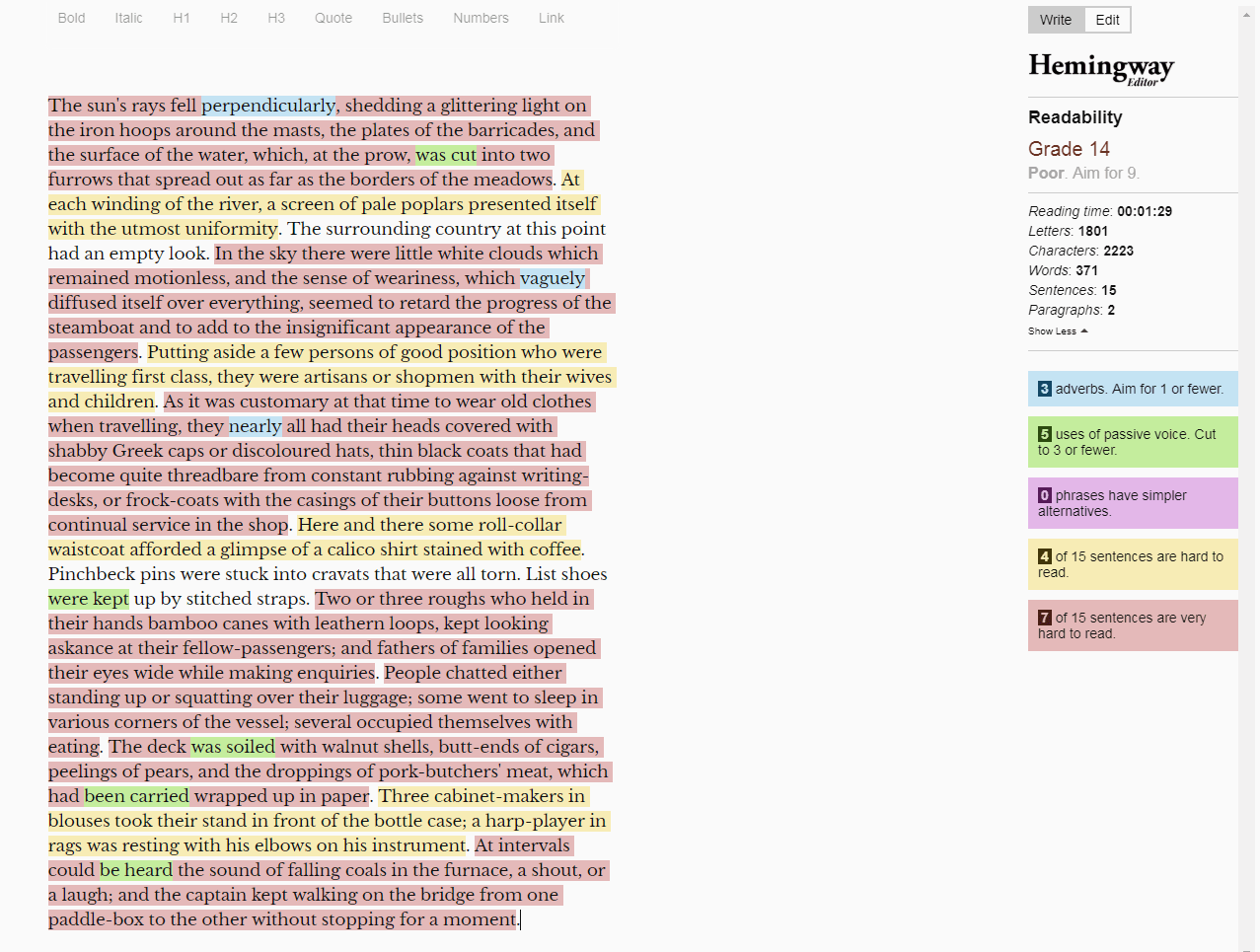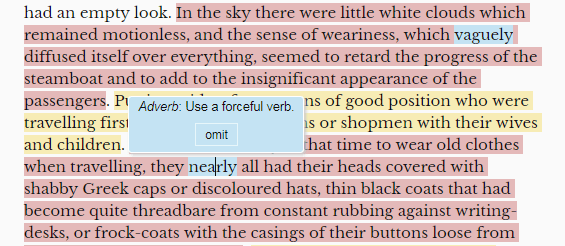The Hemingway Editor/App reads Gustave Flaubert
What would the Hemingway think of a text by a “wordy” writer, such as Gustave Flaubert?
We gave The Hemingway Editor a passage from Flaubert’s Sentimental Education, in its first (slightly clunky) English translation:
Unsurprisingly, the tool did not like the lengthy sentences that are so characteristic of Flaubert’s writing. The Hemingway App failed to see that for the sake of fluency, most of Flaubert’s long sentences in the second half of the paragraph are actually formed by two or several mini-sentences that are separated by a semicolon.
The tool, however, was satisfied with Flaubert’s sparse use of adverbs. Where the Hemingway did catch an adverb, it made strange suggestions for correction, such as here:
(What would the right verb be for replacing the phrase “fell perpendicularly”?)
Or here:
If the adverb refers to the grammatical object in a sentence (i.e. “they all”), what difference would changing the verb phrase (i.e. “had their heads covered”) make?
Because Flaubert’s language is vivid, vibrant, and visual, the reader can easily follow, imagine, and engage with the narrative. All that is required is for the reader to slow down and pay attention.
Would you rate this passage as “very difficult” to read, as the Hemingway has?
Text used in the experiment: Gustave Flaubert, Sentimental Education or, The History of a Young Man (Volume 1). Originally published in English 1904 by M. Walter Dunne (New York & London). Translated into English by anonymous translator. Released as Project Gutenberg e-book in 2011.


